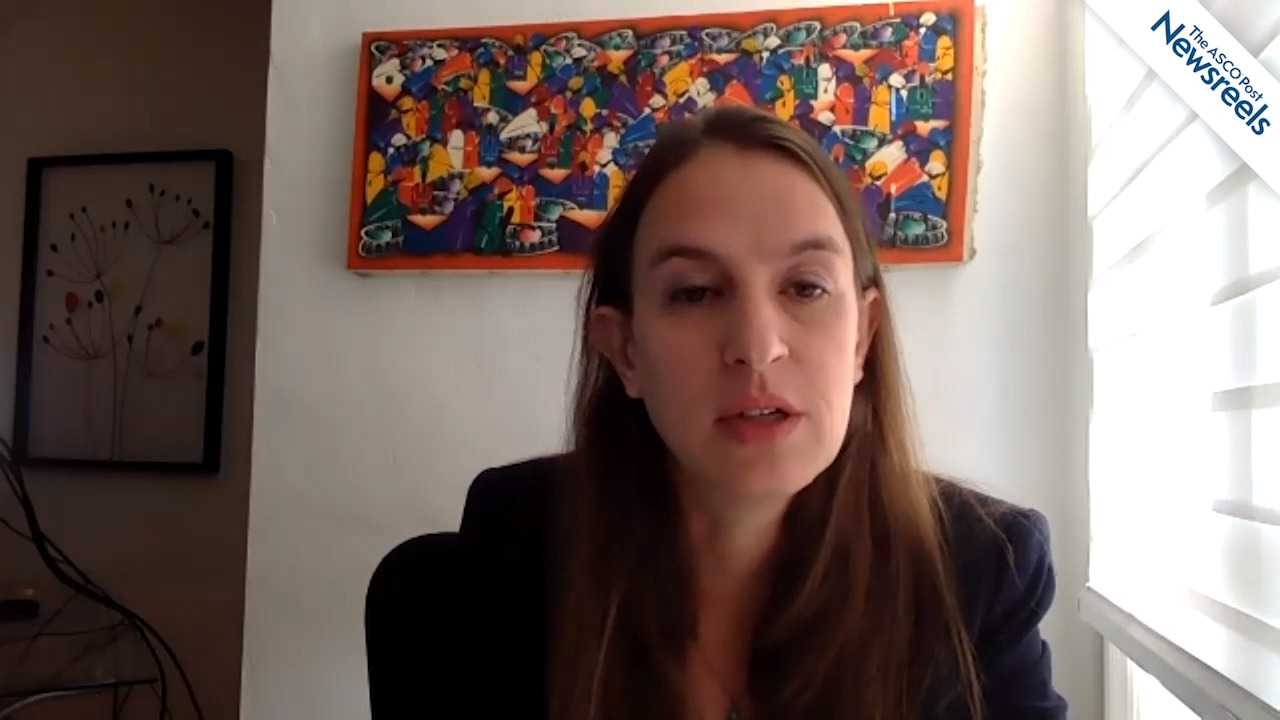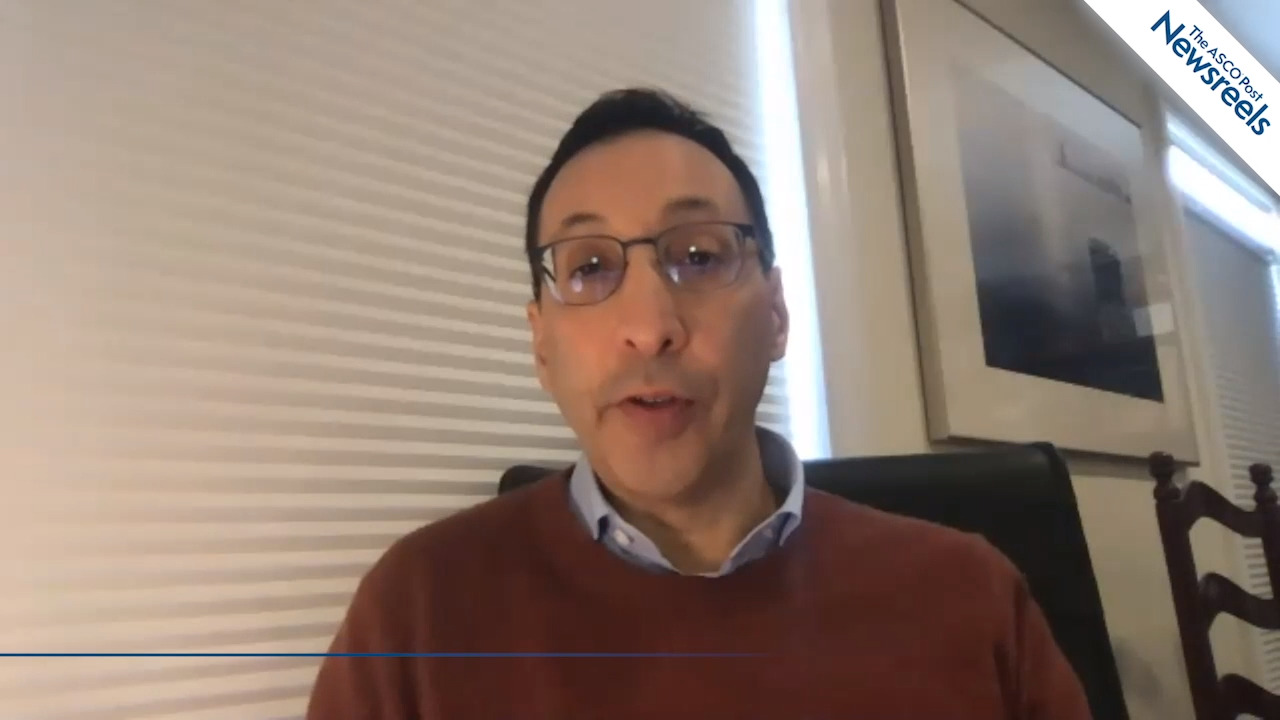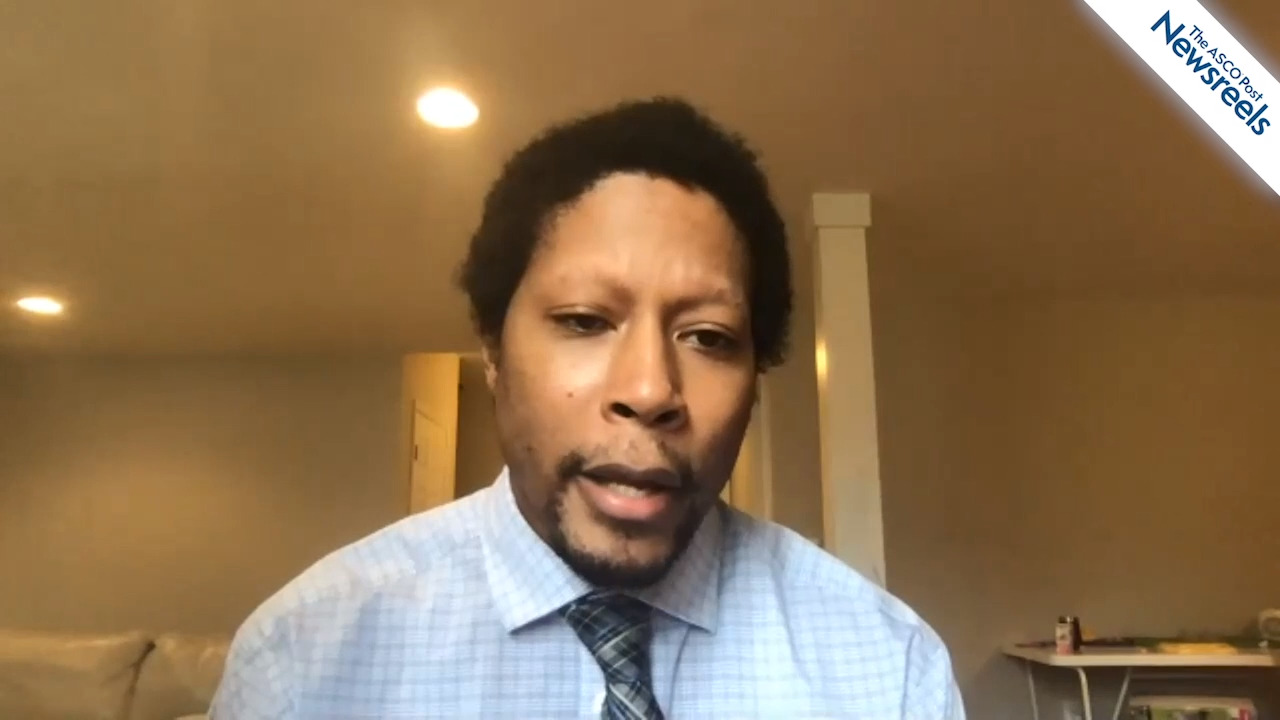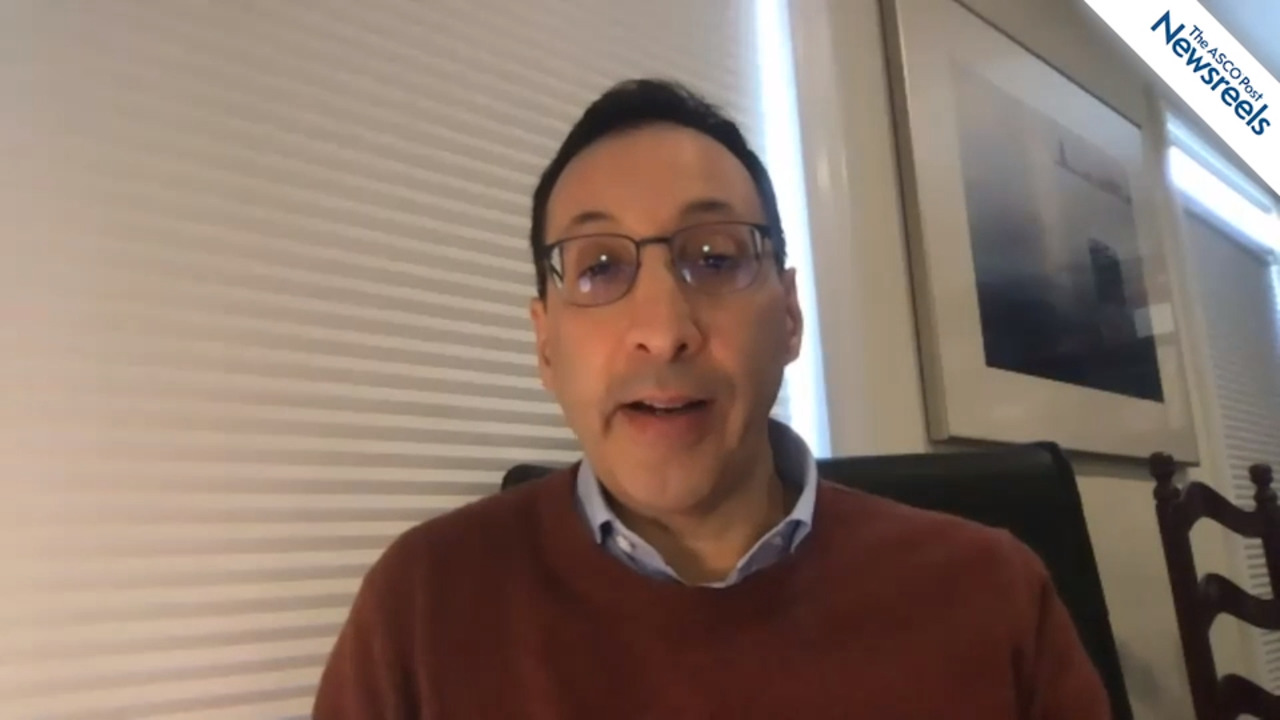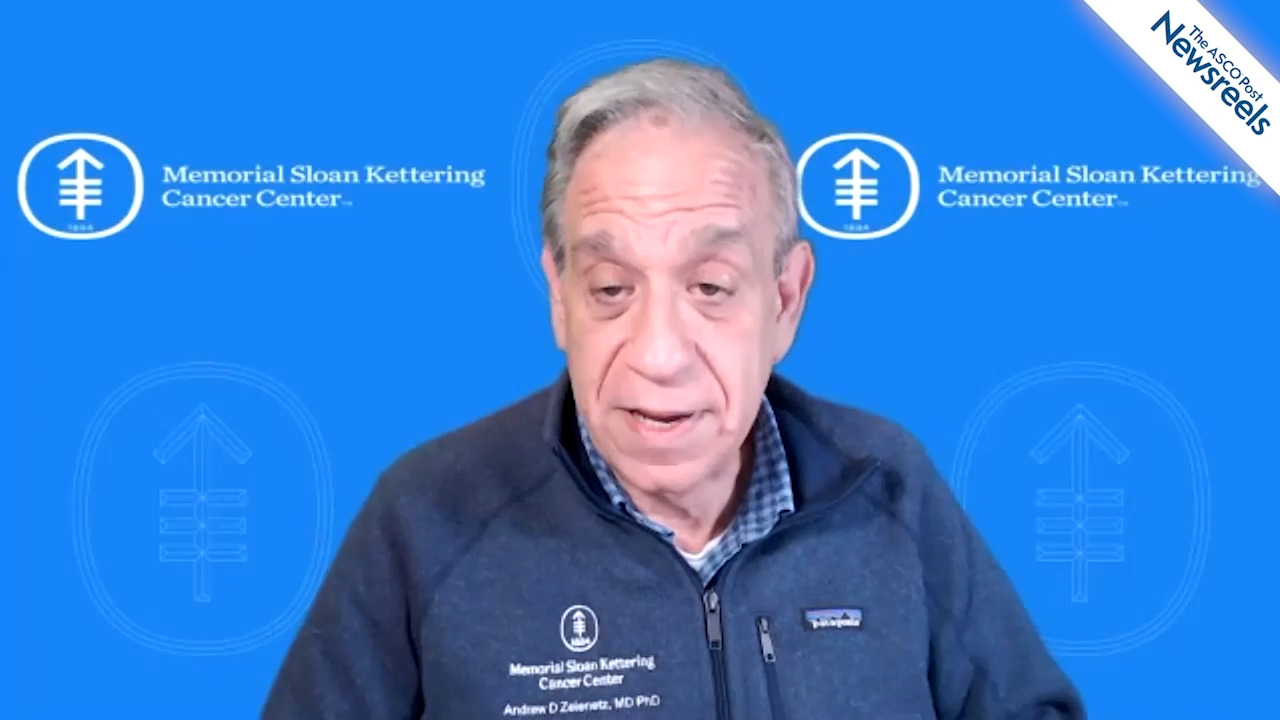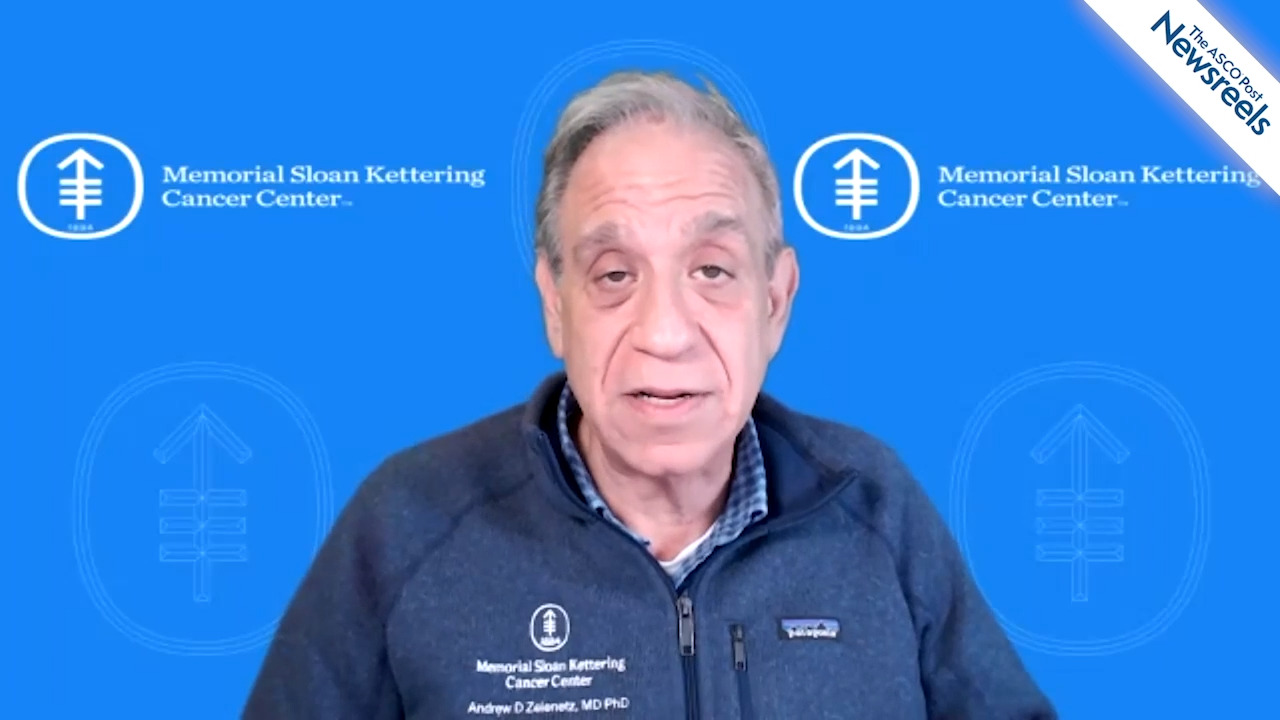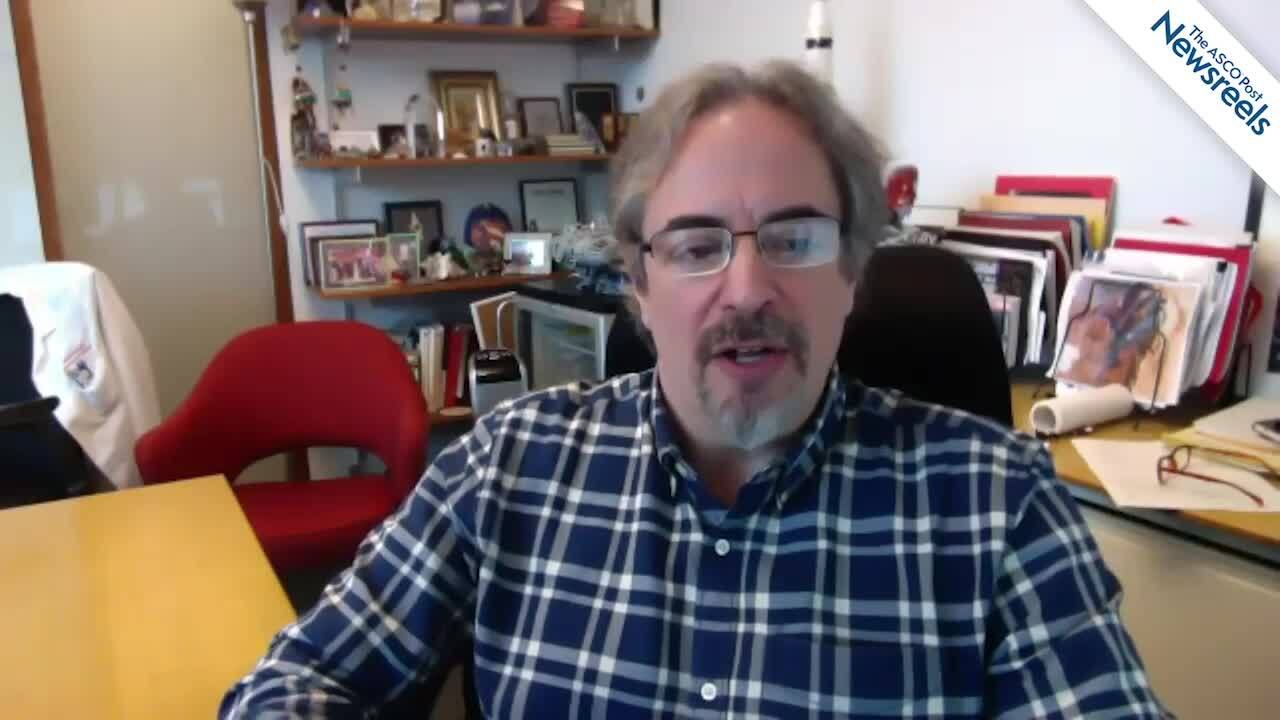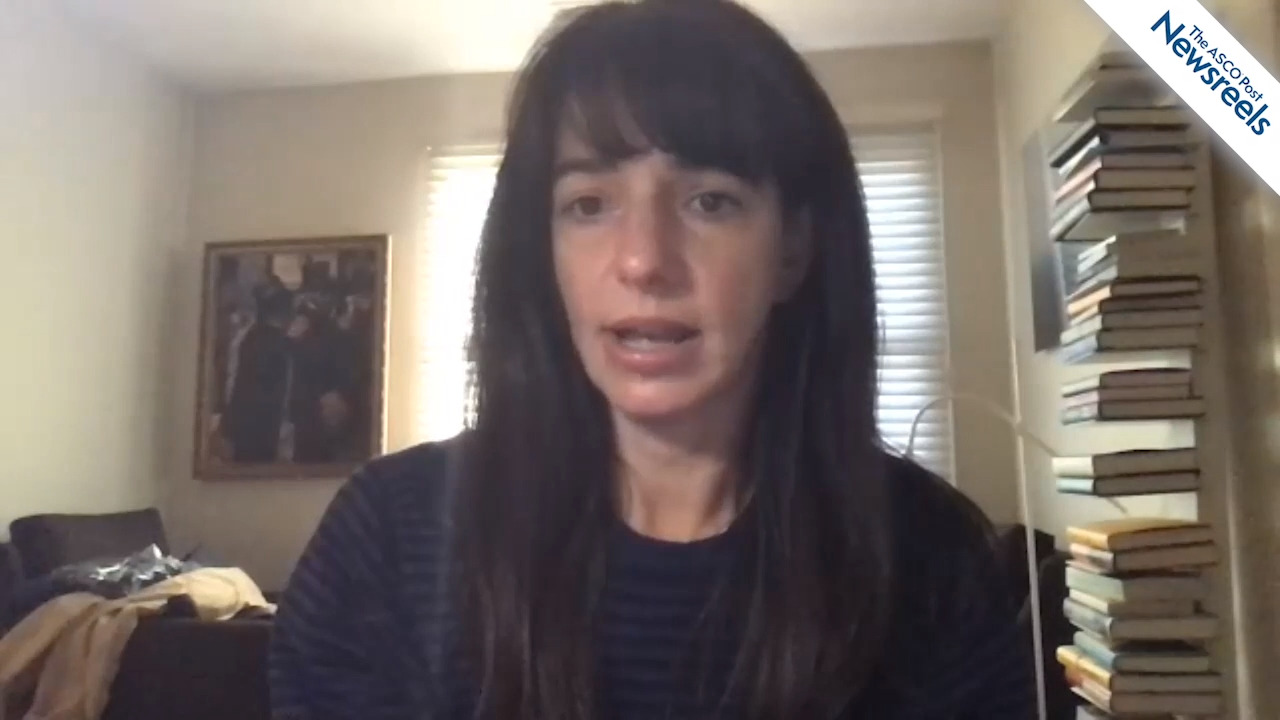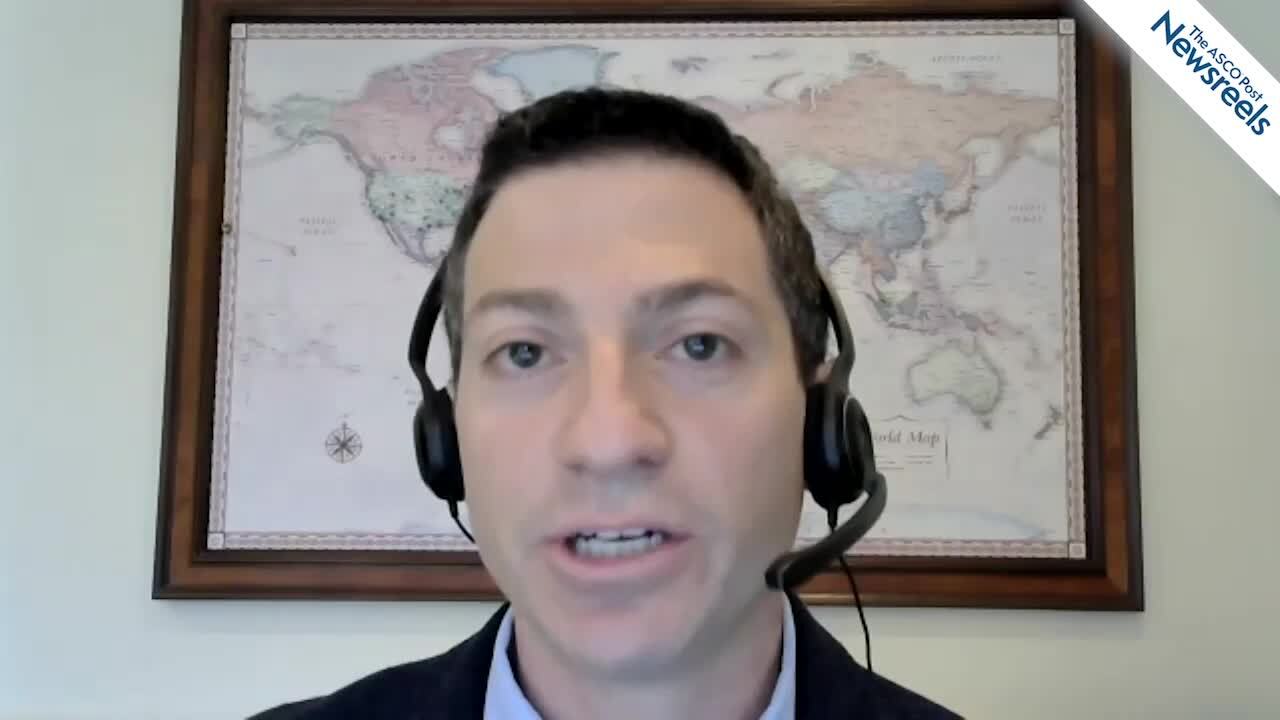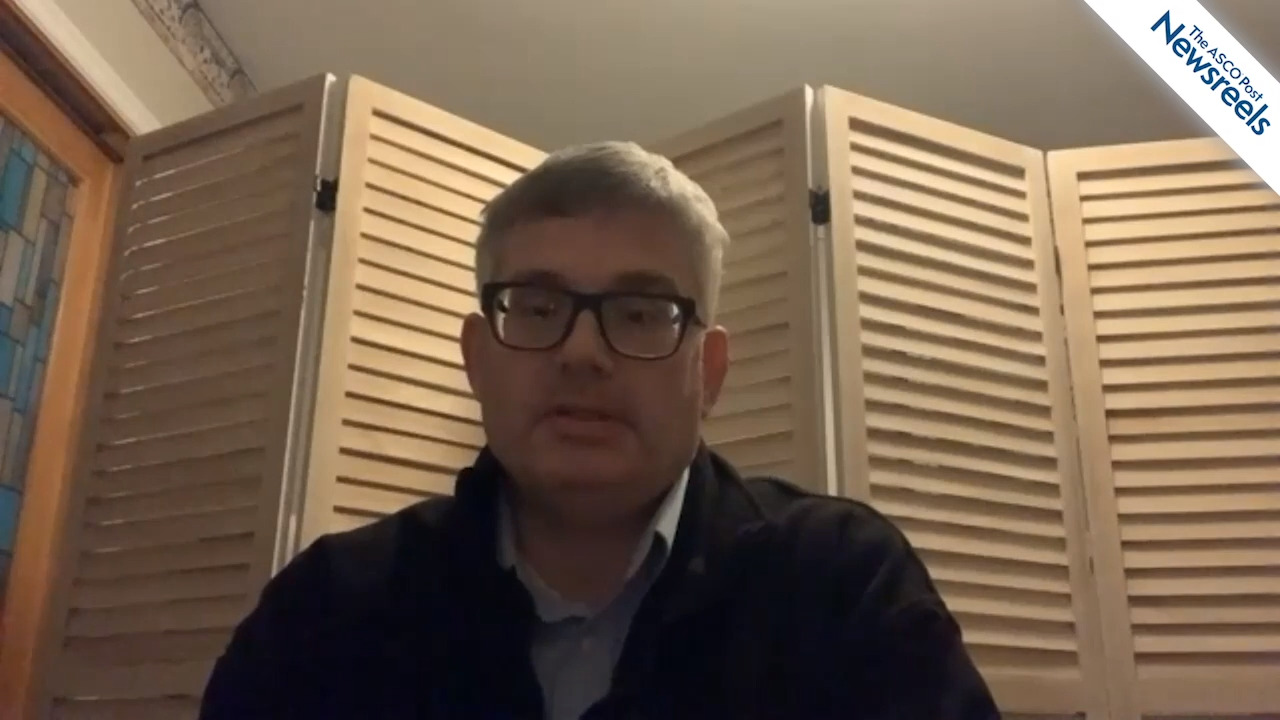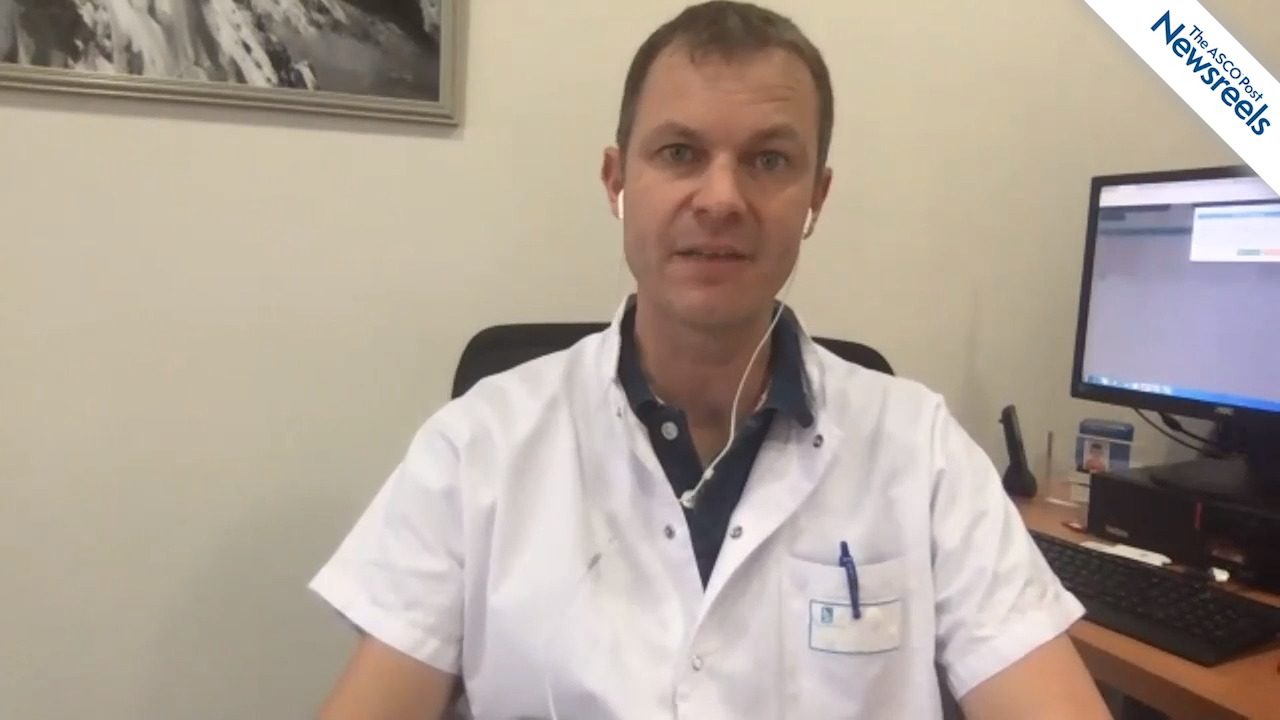ASH 2020 Meeting Highlights
The world of hematologic malignancies continues to move forward at a robust pace despite the challenges of the COVID era. Although some areas of clinical trials and basic research suffered short-term stoppages or delays due to the pandemic, the studies presented at the 2020 American Society of...
Effect of Organ Function–Based Eligibility Criteria on Clinical Trial Enrollment for Patients With DLBCL
In a study reported in the Journal of Clinical Oncology, Khurana et al found that up to 24% of patients with newly diagnosed diffuse large B-cell lymphoma (DLBCL) receiving standard immunochemotherapy are excluded from participation in clinical trials on the basis of organ function eligibility...
Optimal Radiotherapy Dose for Follicular and Marginal Zone Lymphomas: 24 vs 4 Gy
As reported in The Lancet Oncology by Peter Hoskin, MD, and colleagues, 5-year follow-up of the phase III noninferiority FoRT trial showed that radiotherapy at 24 vs 4 Gy continued to be associated with superior freedom from local disease progression in patients with follicular or marginal zone...
Expert Point of View: Deepa Jagadeesh, MD, MPH
In commenting on the results of the phase II PRIMO trial of the PI3K inhibitor duvelisib by Pro et al, Deepa Jagadeesh, MD, MPH, Assistant Professor, Cleveland Clinic Lerner College of Medicine, Lymphoma and Bone Marrow Transplant Program, and Taussig Cancer Institute, observed that while response...
Phase II PRIMO Dose-Optimization Trial of Duvelisib in Peripheral T-Cell Lymphoma
Researchers at the ASH Annual Meeting and Exposition reported high response rates in patients with relapsed peripheral T-cell lymphoma after treatment with single-agent duvelisib, a dual PI3K inhibitor.1 Barbara Pro, MD, of Robert H. Lurie Comprehensive Cancer Center, Northwestern University...
Expert Point of View: Deepa Jagadeesh, MD, MPH
“Although some B-cell lymphomas are highly curable, this goal remains elusive for most T-cell lymphomas (TCL). Refractory and relapsed disease post induction therapy remains a major challenge in management,” said Deepa Jagadeesh, MD, MPH, Assistant Professor, Cleveland Clinic Lerner College of...
Allogeneic Stem Cell Transplant Improves Survival in Peripheral T-Cell Lymphoma
In a large retrospective analysis of allogeneic transplant for relapsed or refractory peripheral T-cell lymphoma (PTCL), more than half the patients studied were alive at 5 years, investigators reported at the 2020 American Society of Hematology (ASH) Annual Meeting & Exposition.1 “In the...
Expert Point of View: James Essell, MD
James Essell, MD, Medical Director of the Blood Cancer Center, The Jewish Hospital-Mercy Health Cincinnati Cancer and Cellular Therapy Center, and Chair of Cellular Therapy, observed that axicabtagene ciloleucel compares favorably with other CAR T-cell products being evaluated for indolent...
ZUMA-5: Axicabtagene Ciloleucel Elicits Response in Indolent Non-Hodgkin Lymphoma
In the phase II ZUMA-5 trial, the cellular immunotherapy axicabtagene ciloleucel led to responses in 92% of patients with indolent non-Hodgkin lymphoma (NHL), researchers reported at the 2020 American Society of Hematology (ASH) Annual Meeting & Exposition.1 Axicabtagene ciloleucel has improved ...
Lisocabtagene Maraleucel Approved by FDA for Patients With Relapsed or Refractory Large B-Cell Lymphoma
On February 5, 2021, the U.S. Food and Drug Administration (FDA) approved lisocabtagene maraleucel (Breyanzi) for the treatment of adult patients with relapsed or refractory large B-cell lymphoma after two or more lines of systemic therapy, including diffuse large B-cell lymphoma (DLBCL) not...
FDA Grants Accelerated Approval to Umbralisib for Treatment of Marginal Zone and Follicular Lymphomas
On February 5, the U.S. Food and Drug Administration granted accelerated approval to umbralisib (Ukoniq), a kinase inhibitor including PI3K-delta and CK1-epsilon, for the following indications: Adult patients with relapsed or refractory marginal zone lymphoma who have received at least one prior...
Patients With Lymphoma Receiving B-Cell–Depleting Therapies May Be at Greater Risk for Persistent COVID-19 Infection
B-cell–depleting immunotherapy may cause B-cell aplasia and impair the body’s immune response. A retrospective, multicentric French study of patients with lymphoma and persistent COVID-19 infection has found that those treated with B-cell–depleting therapies within the previous 12 months had nearly ...
New Burkitt Lymphoma International Prognostic Index
As reported by Olszewski et al in the Journal of Clinical Oncology, members of The Burkitt Lymphoma International Prognostic Index Consortium have developed an index—the Burkitt Lymphoma International Prognostic Index (BL-IPI)—that provides “robust discrimination of survival” among adult patients...
Lenalidomide Plus Subcutaneous Rituximab-MiniCHOP in Patients Aged 80 or Older With DLBCL
In the French phase III SENIOR trial reported in the Journal of Clinical Oncology, Oberic et al found that the addition of lenalidomide to subcutaneous rituximab plus attenuated-dose CHOP (mini-CHOP; cyclophosphamide, doxorubicin, vincristine, prednisone) did not improve overall survival in...
FDA Approves Crizotinib for Children and Young Adults With Relapsed or Refractory Systemic ALK-Positive ALCL
On January 14, the U.S. Food and Drug Administration (FDA) approved crizotinib (Xalkori) for pediatric patients aged 1 year and older and young adults with relapsed or refractory systemic anaplastic large cell lymphoma (ALCL) that is ALK-positive. The safety and efficacy of crizotinib have not been ...
Lena E. Winestone, MD, MSHP, on Health-Care Disparities in Hematologic Cancers: Real-World Data
Lena E. Winestone, MD, MSHP, of the University of California, San Francisco and Benioff Children’s Hospital, reviews different aspects of bias in treatment delivery, including patient selection for clinical trials; racial and ethnic disparities in survival for indolent non-Hodgkin diffuse large B-cell lymphomas; and end-of-life hospitalization of patients with multiple myeloma, as well as outcome disparities (Abstracts 207-212).
Steven M. Horwitz, MD, on PTCL: Update on Efficacy of Duvelisib Dose Optimization
Steven M. Horwitz, MD, of Memorial Sloan Kettering Cancer Center, discusses phase II data from the Primo trial, which support continued evaluation of duvelisib as a treatment option for relapsed or refractory peripheral T-cell lymphoma due to consistent response rates (Abstract 44).
Tycel J. Phillips, MD, on Marginal Zone Lymphoma: Efficacy and Safety of Parsaclisib
Tycel J. Phillips, MD, of the University of Michigan Rogel Cancer Center, discusses phase II data from the CITADEL-204 study, showing that patients with relapsed or refractory marginal zone lymphoma who were not previously treated with a Bruton’s tyrosine kinase inhibitor achieved rapid and durable responses with single-agent parsaclisib. Comparable results were also observed in patients with nodal, extranodal, or splenic disease (Abstract 338).
Steven M. Horwitz, MD, on T-Cell Lymphoma: Update on Allogeneic Hematopoietic Transplant
Steven M. Horwitz, MD, of Memorial Sloan Kettering Cancer Center, discusses data from the largest multicenter retrospective analysis of allogeneic hematopoietic transplantation, which supports its curative potential in patients with mature T-cell lymphoma, a group marked by poor survival and limited treatment options (Abstract 41).
Initial Therapy for Asymptomatic Follicular Lymphoma: Start With Watch and Wait or Rituximab
For patients with indolent follicular lymphoma, generally take a conservative approach to treatment unless the patient is symptomatic, advised John P. Leonard, MD, Executive Vice-Chair of Weill Department of Medicine at Weill-Cornell Medicine/NewYork-Presbyterian, New York.1 “Prognostic scores are...
FDA Approves Rituximab-arrx, a Biosimilar to Rituximab
On December 17, the U.S. Food and Drug Administration (FDA) approved rituximab-arrx (Riabni), a biosimilar to rituximab (Rituxan), for the treatment of adult patients with non-Hodgkin lymphoma, chronic lymphocytic leukemia, granulomatosis with polyangiitis (Wegener's granulomatosis), and...
ASH 2020: ctDNA May Indicate Increased Risk of Relapse After Stem Cell Transplant in Patients With DLBCL
Many patients with diffuse large B-cell lymphoma (DLBCL) may be cured by autologous stem cell transplant, but as many as half eventually relapse. New research presented by Reid Merryman, MD, and colleagues at the 2020 American Society of Hematology (ASH) Annual Meeting & Exposition suggests...
ASH 2020: Phase II ZUMA-12 Study Investigates Axicabtagene Ciloleucel for High-Risk Large B-Cell Lymphoma
The phase II ZUMA-12 trial found that axicabtagene ciloleucel, an autologous anti-CD19 chimeric antigen receptor (CAR) T-cell therapy, is a safe and effective therapy for patients with high-risk large B-cell lymphoma. These results were presented by Sattva S. Neelapu, MD, and colleagues at the 2020 ...
Andrew D. Zelenetz, MD, PhD, on Mantle Cell Lymphoma: Expert Perspective on Key Clinical Trials
Andrew D. Zelenetz, MD, PhD, of Memorial Sloan Kettering Cancer Center, offers his expert views on five treatment studies in mantle cell lymphoma focusing on the next-generation BTK inhibitor LOXO-305; lisocabtagene maraleucel; minimal residual disease monitoring following autologous stem cell transplantation with or without rituximab maintenance; the antibody-drug conjugate VLS-101; and venetoclax, lenalidomide, and rituximab (Abstracts 117, 118, 120, 121, 122).
Andrew D. Zelenetz, MD, PhD, on Mantle Cell Lymphoma: Immunochemotherapy Plus Lenalidomide
Andrew D. Zelenetz, MD, PhD, of Memorial Sloan Kettering Cancer Center, discusses phase II results from a single-center study that explored a novel approach for high-risk patients with mantle cell lymphoma. Among patients with TP53 wild-type disease, the data suggested this treatment was effective (Abstract 119).
Ari M. Melnick, MD, on Activated B-Cell–Like DLBCL: Gain-of-Function Mutations and Resistance to Ibrutinib
Ari M. Melnick, MD, of Weill Cornell Medicine, discusses the BCL10 mutation in patients with activated B-cell–like diffuse large B-cell lymphoma, and his study results which showed that the mutation should be considered as a biomarker for ibrutinib resistance so that alternative targeted treatments can be prioritized (Abstract 3).
Extranodal Marginal Zone Lymphoma of Mucosa-Associated Lymphoid Neoplasms
The ASCO Post is pleased to present the Hematology Expert Review, an ongoing feature that quizzes readers on issues in hematology. In this installment, Drs. Abutalib and Medeiros explore extranodal marginal zone lymphoma of mucosa-associated lymphoid neoplasms (MALT lymphomas). For each quiz...
Caron A. Jacobson, MD, on Treating Large B-Cell Lymphoma With Axicabtagene Ciloleucel
Caron A. Jacobson, MD, of the Dana-Farber Cancer Institute, discusses results from the ZUMA-9 C2 study, an ongoing trial that is exploring axicabtagene ciloleucel in patients with relapsed or refractory large B-cell lymphoma (Abstract 2100).
Matthew S. Davids, MD, on CLL/SLL: New Data on Ibrutinib, Venetoclax, and Rituximab Therapies
Matthew S. Davids, MD, of Dana-Farber Cancer Institute, summarizes three key studies from a session he co-moderated on ibrutinib plus venetoclax for first-line treatment of patients with chronic lymphocytic leukemia (CLL) and small lymphocytic lymphoma (SLL), long-term responses to these agents for relapsed and refractory CLL, and undetectable minimal residual disease following fixed-duration treatment with venetoclax and rituximab for CLL (Abstracts 123, 124, and 125).
David T. Teachey, MD, on Pediatric Leukemia and Lymphoma: New Findings on Cranial Radiation and Bortezomib
David T. Teachey, MD, of the University of Pennsylvania and Children’s Hospital of Philadelphia, discusses data showing that cranial radiation might be eliminated in most children with T-cell acute lymphoblastic leukemia and that bortezomib may improve survival in children with T-cell lymphoblastic lymphoma (Abstract 266).
ZUMA-5 Trial Finds Axicabtagene Ciloleucel Shows Activity in Patients With Indolent Non-Hodgkin Lymphoma
In the phase II ZUMA-5 trial, axicabtagene ciloleucel led to responses in 92% of patients with indolent non-Hodgkin lymphoma treated with the cellular immunotherapy. These findings were reported by Caron Jacobson, MD, MMSc, and colleagues at the 2020 American Society of Hematology (ASH) Annual...
ASH 2020: Early Research Shows CD58 May Be a Biomarker for Response to Axicabtagene Ciloleucel in Patients With Large B-Cell Lymphoma
Although the immunotherapy axicabtagene ciloleucel has significantly improved treatment outcomes for some patients with large B-cell lymphoma, not all patients benefit. In a new study presented by Robbie G. Majzner, MD, and colleagues at the 2020 American Society of Hematology (ASH) Annual Meeting ...
Emmanuel Bachy, MD, PhD, on Peripheral T-Cell Lymphoma: Romidepsin Plus CHOP
Emmanuel Bachy, MD, PhD, of the Hospices Civils de Lyon, discusses the final analysis of a phase III study of adding romidepsin to chemotherapy in patients with previously untreated peripheral T-cell lymphoma. Adding romidepsin did not improve progression-free survival and was associated with high rates of adverse events (Abstract 39).
FDA Pipeline: Agents in DLBCL, SCLC, AML, and More
Recently, the U.S. Food and Drug Administration (FDA) has issued regulatory decisions for agents to treat diffuse large B-cell lymphoma (DLBCL), small cell lung cancer (SCLC), acute myeloid leukemia (AML), biliary tract cancer, and graft-vs-host disease. Priority Review for Loncastuximab Tesirine...
Pembrolizumab in Adult and Pediatric Classical Hodgkin Lymphoma
In the Clinic provides overviews of novel oncology agents, addressing indications, mechanisms of action, administration recommendations, safety profiles, and other essential information needed for the appropriate clinical use of these drugs. On October 14, 2020, the approval of pembrolizumab was...
Novel Therapies and New Indications for Use in Treatment of Hematologic Malignancies
Daratumumab and hyaluronidase-fihj: On May 1, 2020, the FDA approved daratumumab and hyaluronidase-fihj (Darzalex) for adult patients with newly diagnosed or relapsed or refractory multiple myeloma. Ibrutinib: On April 21, 2020, the FDA expanded the indication of ibrutinib (Imbruvica) to include...
Novel Therapies and New Indications for Use in Treatment of Hematologic Malignancies
Venetoclax: On October 16, 2020, the U.S. Food and Drug Administration (FDA) approved venetoclax (Venclexta) in combination with azacitidine, decitabine, or low-dose cytarabine for newly diagnosed acute myeloid leukemia (AML) in adults aged 75 or older. See page 32 for more on this approval....
Hematologic Oncology Highlights 2019–2020 Almanac
The past year has seen remarkable advances in the treatment of leukemia, lymphoma, and multiple myeloma, which combined account for 9.9% of the estimated 1,806,590 new cases of cancer diagnosed in the United States and an estimated 56,840 cancer-related deaths.1 Novel therapies are providing...
Study Results With PET-Directed Therapy for Limited-Stage DLBCL
As reported in the Journal of Clinical Oncology by Daniel O. Persky, MD, of the University of Arizona Cancer Center, Tucson, and colleagues, the phase II Intergroup National Clinical Trials Network Study S1001 has shown good outcomes with positron-emission tomography (PET)-directed therapy in...
Chemotherapy-Free Approaches in Follicular and Mantle Cell Lymphomas
As chemotherapy and chemoimmunotherapy regimens reach their maximal impact in follicular lymphoma and mantle cell lymphoma, clinicians are turning to chemotherapy-free approaches to achieve better control, less toxicity, and (hopefully) a cure. During the ASCO20 Virtual Education Program, Sonali...
Newer Therapeutic Approaches Improving Outcomes in Hodgkin Lymphoma
At the 2020 Debates and didactics in Hematology and Oncology Virtual Conference, sponsored by Emory University School of Medicine and Winship Cancer Institute, Pamela Allen, MD, Assistant Professor of Medicine at Emory, described recent trials on therapeutic approaches that are informative on this ...
Role of Rituximab in Treatment of Children and Adolescents With Mature B-Cell Non-Hodgkin Lymphoma
The European Intergroup for Childhood Non-Hodgkin Lymphoma/Children’s Oncology Group (EICNHL/COG) recently reported a significant improvement in event-free survival among children and adolescents (aged 6 months to 18 years) with high-risk mature B-cell non-Hodgkin lymphoma (B-NHL) following the...
Addition of Rituximab to Standard Chemotherapy Improves Event-Free and Overall Survival in Children With High-Risk, Mature B-Cell Non-Hodgkin Lymphoma
In a European Intergroup for Childhood Non-Hodgkin Lymphoma/Children’s Oncology Group phase III trial, reported in TheNew England Journal of Medicine, -Véronique Minard-Colin, MD, PhD, of Gustave Roussy, Université Paris-Saclay, Villejuif, France, and colleagues found that the addition of rituximab ...
Do All Patients With Refractory Diffuse Large B-Cell Lymphoma Need CAR T-Cell Therapy?
Chimeric antigen receptor (CAR) T-cell therapy has made great strides in treating patients with relapsed or refractory diffuse large-B cell lymphoma (DLBCL) and refractory mantle cell lymphoma (MCL), but there may be newer strategies that can produce equivalent outcomes, and not all patients with...
Bispecific Anti-CD20/Anti-CD19 CAR T Cells for Patients With Relapsed B-Cell Malignancies
In a single-institution phase I dose-escalation and -expansion trial reported as a letter in Nature Medicine, Shah et al found that treatment with tandem bispecific anti-CD20/anti-CD19 4-1BB–CD3ζ lentiviral (LV20.19) chimeric antigen receptor (CAR) T cells produced high response rates in adult...
Effect of ASH Choosing Wisely Recommendations on Frequency of Surveillance Imaging in Patients With DLBCL
In a retrospective analysis reported in JCO Oncology Practice, Durani et al found that use of surveillance imaging in patients with diffuse large B-cell lymphoma (DLBCL) decreased following publication of the American Society of Hematology (ASH) Choosing Wisely recommendations to limit such imaging ...
Outcomes With Second-Line Therapy After Relapse in Patients With Early-Stage, Favorable, Classical Hodgkin Lymphoma
In an analysis of two German Hodgkin Study Group trials reported in the Journal of Clinical Oncology, Bröckelmann et al found that second-line treatment with conventional polychemotherapy resulted in similar second progression–free survival (progression-free survival-2) durations vs high-dose...
The WHO Classification of Tumors of Hematopoietic and Lymphoid Tissues
The ASCO Post is pleased to present Hematology Expert Review, an ongoing feature that quizzes readers on issues in hematology. In this installment, Drs. Syed Ali Abutalib and L. Jeffrey Medeiros explore the updated World Health Organization (WHO) classification of hematopoietic and lymphoid tissue...
Study Finds Combined HDAC and mTOR Inhibition May Improve Outcomes in Patients With Relapsed or Refractory Hodgkin Lymphoma
Results from a nonrandomized, dose-escalation phase I clinical trial investigating the histone deacetylase (HDAC) inhibitor vorinostat in combination with the mTOR inhibitors sirolimus or everolimus found the combination therapies showed activity in heavily pretreated patients with relapsed or...
Tazemetostat in Relapsed or Refractory Follicular Lymphoma
In a phase II trial reported in The Lancet Oncology, Franck Morschhauser, MD, and colleagues found that the oral EZH2 inhibitor tazemetostat produced durable responses in patients with relapsed or refractory follicular lymphoma with or without an EZH2 mutation. As noted by the investigators,...
